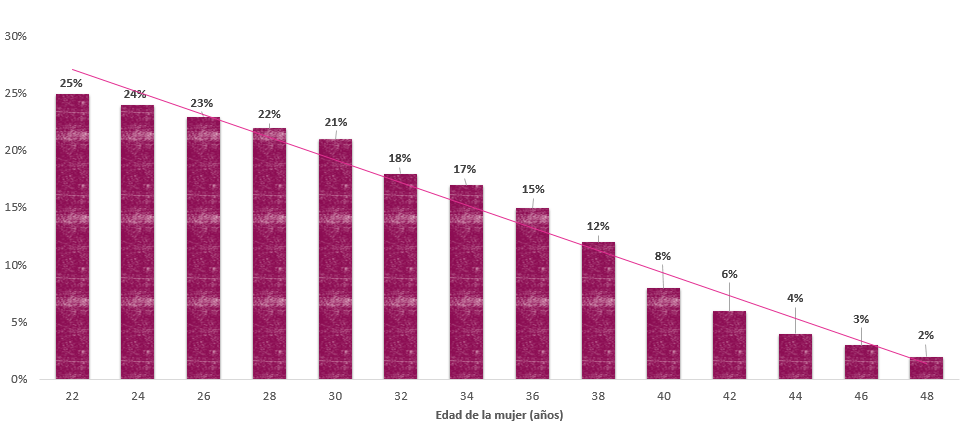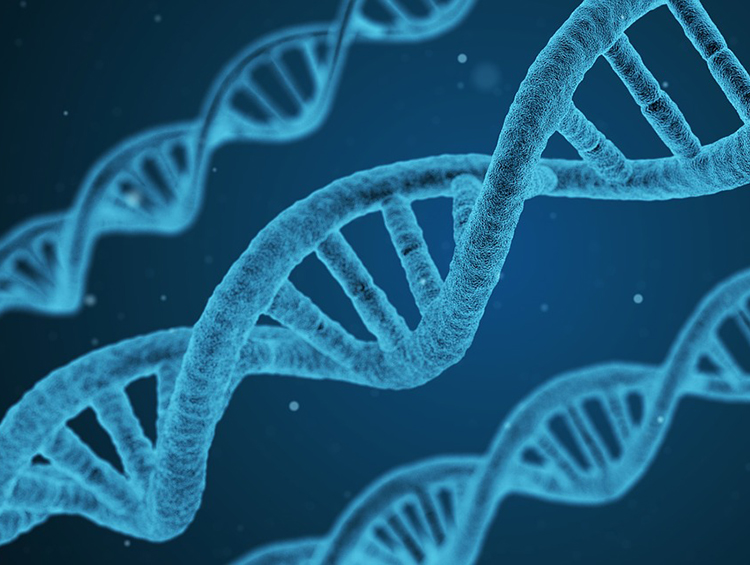
- Criotransferencia, Embriodonación, FIV, Ovodonación
Autora: Sylvia Fernández Shaw
 Español (Spanish)
Español (Spanish) Français (French)
Français (French) English
EnglishThe monthly probability of pregnancy goes from 20-25% when we are bellow 30, to around 15% up till 38, and down bellow 10% above that age. Taking this into account, it is recommended to do a fertility study if you are younger than 35 and have not become pregnant after a year of trying; or if you are 35 or older and after 6 months you have not achieved a pregnancy. The reason is that, after that time, the chances of pregnancy will go down to very low levels, and any reproduction treatment will improve those chances significantly. We show you here the most frequent tests. At the first consultation we will evaluate which are the ones appropiate for you.

The monthly probability of pregnancy goes from 20-25% when we are bellow 30, to around 15% up till 38, and down bellow 10% above that age. Taking this into account, it is recommended
The reason is that, after that time, the chances of pregnancy will go down to very low levels, and any reproduction treatment will improve those chances significantly. . We show you here the most frequent tests. At the first consultation we will evaluate which are the ones appropiate for you. At the first consultation we will evaluate which are the ones appropiate for you.
Measuring certain hormones in a blood test will give us information on the ovarian reserve and function. We can measure FSH, LH and estradiol between day 3 and 5 of the menstrual cycle, which, additionally, will give us a prognosis on how well ovaries might respond to an ovarian stimulation; or we can measure the levels of Antimullerian Hormone (AMH), at any time of the menstrual cycle.
A transvaginal scan will give us information on the ovaries, uterus and Fallopian tubes. In the ovaries, the antral follicle count will reflect the ovarian reserve. Additionally, we could observe cysts from endometriotic or other origins. In the uterus we will be able to diagnose the presence of polyps, fibroids or other anatomic pathologies that could limit the female fertility.
The semen analysis will inform on the count and motility of sperm, which makes it the basic male fertility test. The Mobile Sperm Count (MSC), performed on a semen sample, will orientate on the fertility treatment that the couple will need to achieve a pregnancy.
Additional tests include the annual gynaecological examination, vaginal and endocervical cultures and an evaluation of the uterus and Fallopian tubes with hysterosalpingogram, hysteroscopy, hysterosonography or laparoscopy. In the male, it could include a urethral culture, DNA sperm fragmentation, sperm FISH analysis, and recesive genetic diseases test that can confirm the “genetic compatibility” with a donor in case of egg donation.
A consultation with the nutritionist is needed in case of malnutrition by default or excess (obesity). A body mass index (BMI) outside the normal limits is associated, in both men and women, with a diminished fertility and a higher risk of miscarriage and other gestational pathologies.


Camino de la Zarzuela, 19 28023 (Aravaca) Madrid.
+34 91 740 16 90
secretaria@urh.es
Monday to thursday
8:00h a 14:00h 15:00h a 19:00h
Friday
8:00h a 14:00h



Demande un rendez-vous.
PIDE CITA
Envíanos este formulario con tus preferencias para la cita (fechas y franja horaria) y te llamaremos por teléfono para concertarla. En caso de que quieras que te contactemos por e-mail indícanoslo en los comentarios. Muchas gracias.